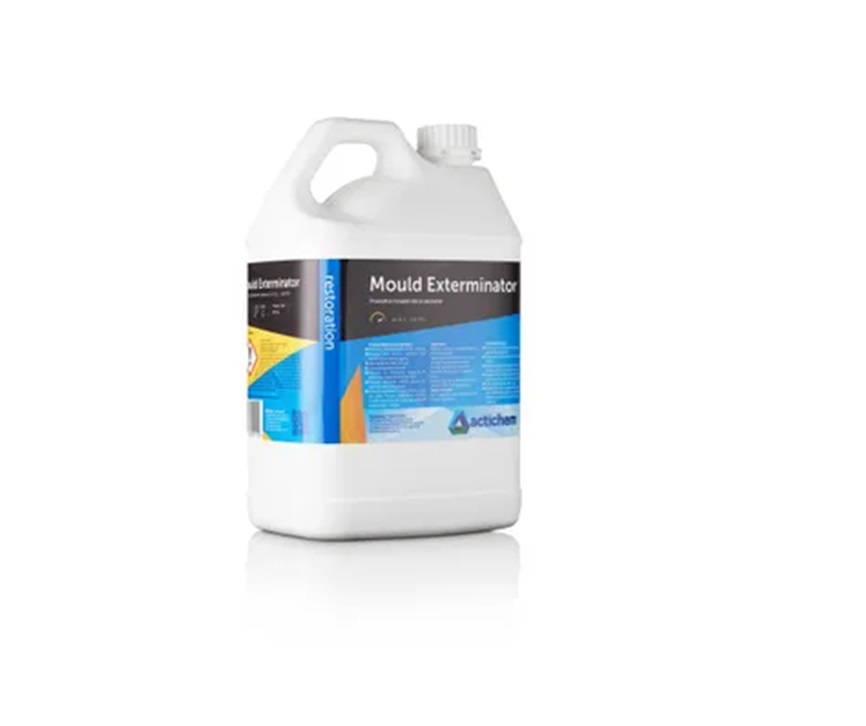
Nobody likes mould in their home or at their workplace. Unfortunately, some surroundings are prone to mould, and even when mould is eliminated, it may reappear, necessitating ongoing treatment with chemicals for mould removal. Furthermore, it can trigger allergic reactions and more severe respiratory symptoms ranging from mild to severe. While many cleaners utilise bleach to destroy mould, bleach often kills surface layers and pales them to a dull colour, giving the appearance that mould has been removed. In reality, the mould spores can still survive, resulting in rapid mould regrowth. Therefore, mould removal and management necessitate that the mould is killed down to the spore level and eliminated. When utilising proper chemicals, it is necessary to wear protective clothing to protect the lungs, skin, and eyes.
Mould thrives in wet environments and can pose a health risk if not regulated. It can furthermore cause an unattractive view and discolour and harm surfaces. Some surroundings are predisposed to mould, and even if mould is eliminated, it may reappear, necessitating ongoing treatment. Floods frequently result in mould growth due to the tremendous soaking of surfaces with detritus and bacteria. In addition, sustained heavy rain saturates the earth, causing surrounding walls to leak moisture through cupboards and walls. Although black mould is a prominent source of concern, there are also different types of mould. Ceiling mould, kitchen mould and bathroom mould are all frequent.
Since most cleaners use bleach to destroy mould, bleach often only kills top layers and bleaches them to a pale colour, giving the appearance that mould has been removed. But, in fact, the mould spores may still prevail, so mould regrowth transpires quickly.
What is Eco Mould Removal?
Eco mould removal is the process of removing and disinfecting areas contaminated with mould without using harsh chemicals. Instead of using traditional household cleaners, which contain approximately 60 different toxic chemicals, eco mould removal turns to eco-friendly methods of mould removal melbourne that utilise natural enzymes that break down mould at the source instead of breaking down your home’s structures.
Mould Removal That Works
Mould removal and management necessitate that the mould is killed down to the spore level and eliminated. When utilising acceptable chemicals, wear protective equipment to protect the skin, eyes, and lungs. Surface testing should be performed when applying mould control chemicals to ensure no detrimental influence on colour or surface damage. Carpet cleaning chemicals, in particular, can cause harm to carpets and upholstery. Furthermore, clothing is frequently flimsy and has poor colour fastness.
Exterior mould treatment levels progress from exterminating mould to killing mould and mould stain removal, followed by thorough cleansing of mould in very absorbent surfaces, primarily outer surfaces, and may involve chlorinated chemicals. Mould spores in the air require treatment with an aerosol spray. The mould and the chemical may pose a respiratory risk, mainly when fogging methods on personal protective apparel, spray droplet sizes, and air extraction is used. If the mould is removed with a vacuum, a HEPA 13 filter or something better is required; anything less may let bacteria particles pass via the vacuum bags and filter back into the room as airborne mould. Our HEPA 13 vacuums are affordable, such as the NIlfisk VP300 HEPA. More extreme hazardous vacuums include strengthened filtration cartridges capable of catching microscopic bacteria and toxic pollutants such as lead particles in asbestos, old paints, and fine silica dust.
Preventing Mould Growth
Mould prevention entails keeping the air and surfaces dry, immediately eliminating liquids, removing microorganisms, and disinfecting. Carpet cleaners frequently utilise air movers in deep cleaning circumstances to accelerate drying periods and use residual biocidal mould agents such as Biosan after cleaning to combat remaining germs. Room and cupboard dehumidifiers eliminate moisture. Easy moisture absorption canisters in cupboards collect moisture visually, as indicated by the rising water level in the tub. Room and cupboard dehumidifiers eliminate moisture. Simple moisture absorption canisters in cupboards contain moisture visually, as indicated by the increasing water level in the tub.
There are biocidal and Gena-approved chemicals and powerful mould cleansers with chlorine. To discuss mould remediation, please contact Rapid Clean Newcastle.
